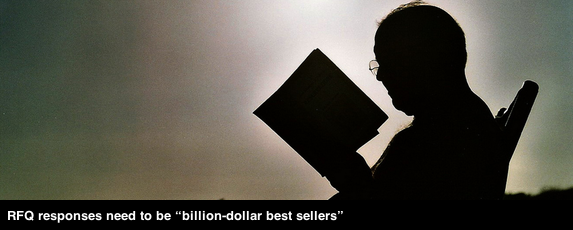Requests for qualifications (RFQs) are typically the first stage in large procurements—especially for alternative financing procurement (AFP), such as public private partnership (P3), projects.
The purpose of an RFQ is to narrow the field of potential proponents to those best qualified. This sets up a request for proposals (RFP) stage restricted to (usually) three proponents with whom the issuer can have structured discussions prior to submission. This process is designed to obtain equally acceptable proposals that compete mainly on their financial offers.
RFQs are appearing as part of smaller procurements
Until recently issuers used RFQs only for very large infrastructure projects. Today, in our home jurisdiction of Ontario Canada, issuers are turning to this model for smaller projects—including a current one for street lighting that is likely to result in a contract well below $100 million, including the cost of a 20-year operating term.
How RFQs and RFPs differ
An RFQ response describes how a proponent will approach a project, while the RFP response sets out in detail how it will organize, design and execute the project, including the cost. So—although often tightly structured—the RFQ narrative is largely qualitative and persuasive. An RFP response, on the other hand is a more quantitative, technical document that includes specific commitments intended to form the basis of a project agreement.
One client put it this way: “RFQs ask us to write billion-dollar best sellers. We don’t know how to do that. The RFP is a design and pricing game—that’s a game we understand.”
Challenges to RFQ success
Two aspects of RFQ competitions help explain our client’s frustration:
- RFQ issuers are naturally risk-averse. Unsurprisingly, they want to shortlist proponents with proven ability to succeed. That means teams must not only have had success, as an example, building bridges—but nearly identical bridges in nearly identical circumstances (length, weather conditions, water depth, etc.). And issuers strongly prefer consortium members and key individuals who have successfully worked together on those multiple similar projects.
- The RFQ scoring process is often opaque. Because responses are qualitative and unpriced, it’s difficult to challenge a low RFQ score. Debriefs are usually very general, and unsuccessful proponents are reluctant to press for fear of reducing their chances in future competitions. From the issuer’s perspective, one reason for keeping the process subjective may be the long operating terms of many AFP projects. The prospect of a 25- or 50-year relationship tends to make cultural fit nearly as important as technical competence.
This combination of a high bar and a subjective process makes it hard for newcomers to get shortlisted.
Want to improve your chances?
Upcoming posts cover key success factors for RFQs, beginning with demonstrating capability in RFQs.


